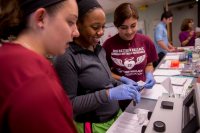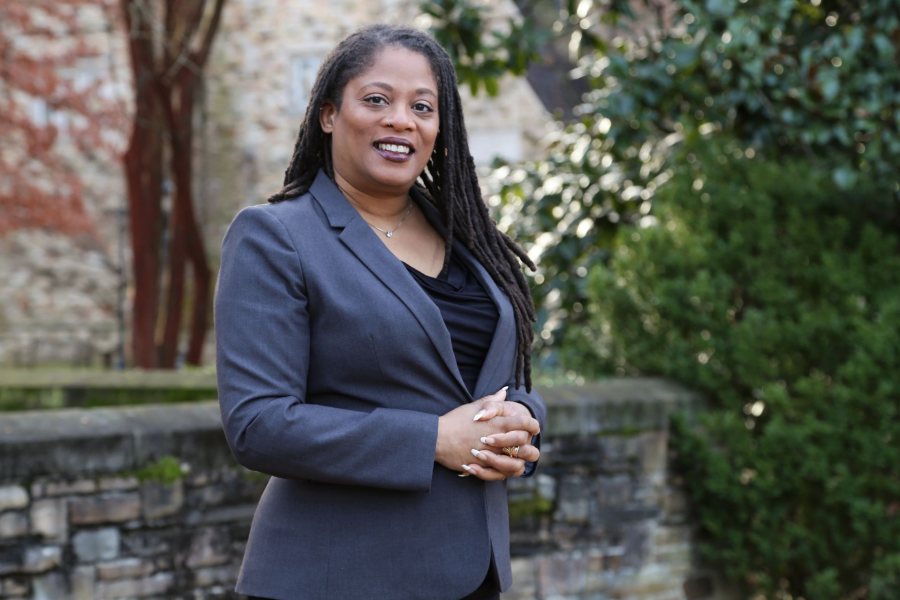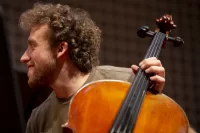
Bates names Noelle Chaddock as vice president for equity and inclusion
Bates College President Clayton Spencer announced today that Noelle Chaddock, associate provost and deputy Title IX coordinator at Rhodes College, will become vice president for equity and inclusion at Bates effective June 1, 2019.
“I am so pleased to welcome Noelle Chaddock to the Bates community at a moment of such promise for our work in equity and inclusion,” said Spencer. “Noelle brings a wealth of experience to this role, a clear and compelling vision of why the work is important, and a record of exceptional diligence and effectiveness in carrying it out. Noelle will be an inspiring leader, partner, and colleague as we continue to challenge ourselves to better realize the founding promise of this college.”

Noelle Chaddock, associate provost and deputy Title IX coordinator at Rhodes College, will become vice president for equity and inclusion at Bates effective June 1, 2019. (Photograph courtesy of Rhodes College)
“I am terribly excited to continue the work of equity, inclusion, access, and social justice at Bates College and in the Lewiston-Auburn community,” said Chaddock. “In visiting Bates, it was clear that there is a deep investment in this work across the institution. This matters greatly to me. The opportunity to work with my new colleagues, our stakeholders, and the brilliant students at Bates in a position shaped and based on best practices is extremely compelling.”
A member of Spencer’s senior leadership team, Chaddock arrives as Bates has redoubled efforts to achieve greater institution-wide equity and inclusion, including significant initiatives throughout the academic program supported by major gifts through the Bates Campaign and comprehensive grants funded by the Andrew W. Mellon Foundation and the Howard Hughes Medical Institute.
In strategically advancing the college’s commitment to equity and inclusion, Chaddock will collaborate with colleagues across campus, and provide vision and support for both structural and programmatic initiatives, including the work of the Office of Intercultural Education, the college’s major student-facing organization for equity and inclusion, which is directed by Julisa De Los Santos.
“The Bates community seems to have a strong sense of what it takes to move through examinations of power and privilege while also stewarding the college’s most important values.”
The new vice president will work with Bates faculty across all disciplines, with a focus on fostering curricular transformation, improved pedagogies, and recruitment and retention of new faculty, with particular attention to those traditionally underrepresented in the academy. Supporting the Office of Human Resources, Chaddock will collaborate on staff hiring and employment practices.
“The Bates community seems to have a strong sense of what it takes to move through examinations of power and privilege while also stewarding the college’s most important values,” Chaddock said. “I think we will do some amazing and impactful work over the coming years.”
Chaddock has served as associate provost at Rhodes College since 2018, overseeing faculty recruiting, retention, and development within the Office of Academic Affairs while working with academic departments on classroom climate and other issues around diversity, equity, inclusion, access, and social justice. Joining Rhodes in 2016, they were the college’s first associate dean of academic affairs for diversity and inclusivity.
Among other accomplishments, Chaddock helped increase racial diversity among Rhodes’ new-faculty cohorts from 13 percent to 46 percent in two years. Other significant work at Rhodes included collaborative leadership of Academic Affairs’ effort to prioritize the institutional assessment of inclusion, equity, and campus climate.
“The desire for human equity” in American society “still cannot be put down.”
A frequent speaker and presenter on issues related to equity and inclusion, Chaddock offered remarks at a 2018 Rhodes event marking the 50th anniversary of the assassination of Martin Luther King Jr., telling the audience of first-year students that “the desire for human equity” in American society “still cannot be put down.” Achieving equity “is our work” and must be done in community because “no individual — no group, no identity — stands alone. Our humanity is intertwined, and our histories have traveled together. It is not possible, no matter how we perform our realities, to pull them apart.”
In 2017 and 2018, Chaddock served as a faculty member for the Rhodes Institute of Regional Studies, a distinctive, multidisciplinary, and experiential program that gathers faculty in history, urban studies, music, Africana studies, psychology, religious studies, education, and geography.
At the State University of New York at Cortland from 2008 to 2016, Chaddock rose from director of multicultural life and diversity to become the university’s inaugural chief diversity officer, while also serving as an adjunct professor in philosophy and Africana studies. They chaired the SUNY System’s University Faculty Senate’s Committee on Equity, Inclusion, and Diversity. Chaddock frequently provides equity training to community partners, including the Binghamton Police Department and the Orpheum Theatre in Memphis.
A scholar whose research and teaching include critical race theory, reframing white feminism, examining mixed race identity, Africana theater, making of race in the Americas, and philosophies of hip hop, Chaddock is a co-editor of the forthcoming book Antagonizing White Feminism: Women’s Studies, Feminism, Gender Identity, and the Academy (Lexington Books, 2019).
Chaddock earned undergraduate and graduate degrees from the State University of New York at Binghamton, including a doctorate in philosophy, interpretation, and culture. Their dissertation explored “Mixed Race Identity in the Millennial United States: The Power of Naming Our Intimate Realities.”
A committee chaired by Professor of Politics Stephen Engel oversaw the national search to fill the Bates position. “The search committee was deeply impressed by Noelle’s collegiality, passion, and demonstrated effectiveness as a leader,” said Engel.
He added, “Noelle has what Bates needs in this position: the ability to bring groups and individuals to common ground across lines of difference, a deep commitment to engaging collaboratively with all campus constituencies, and the skill to effectively address their needs and concerns.”
Comprising Bates faculty, staff, and students, the 12-member search committee was supported by the national executive search firm Isaacson, Miller.




